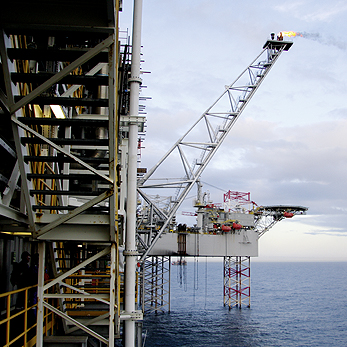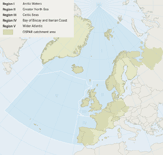Offshore oil and gas activities have developed in the OSPAR area over the past 40 years. Environmental impacts occur throughout the lifecycle of these activities, including during the exploration, production and decommissioning phases. Exploration includes seismic surveys and the drilling of exploratory wells. Production includes the drilling of production wells, and the construction, placement and operation of infrastructure (e.g. platforms, pipelines). Decommissioning, the final phase of an oil and gas field development, involves activities such as the plugging of wells and removal of infrastructure. The transportation of oil and gas by pipeline or tanker has the potential to cause impacts outside the area of production.
OSPAR works under the Offshore Oil and Gas Industry Strategy to establish environmental goals and measures to prevent pollution and protect the marine environment, consistent with the objectives set by OSPAR, especially those for hazardous substances Chapter 5 and for radioactive substances Chapter 6.
OSPAR Strategy objectives for the offshore oil and gas industry
- Prevent and eliminate pollution and take the necessary measures to protect the maritime area against the adverse effects of offshore activities.
- Safeguard human health and conserve marine ecosystems and, when practicable, restore marine areas which have been adversely affected.


